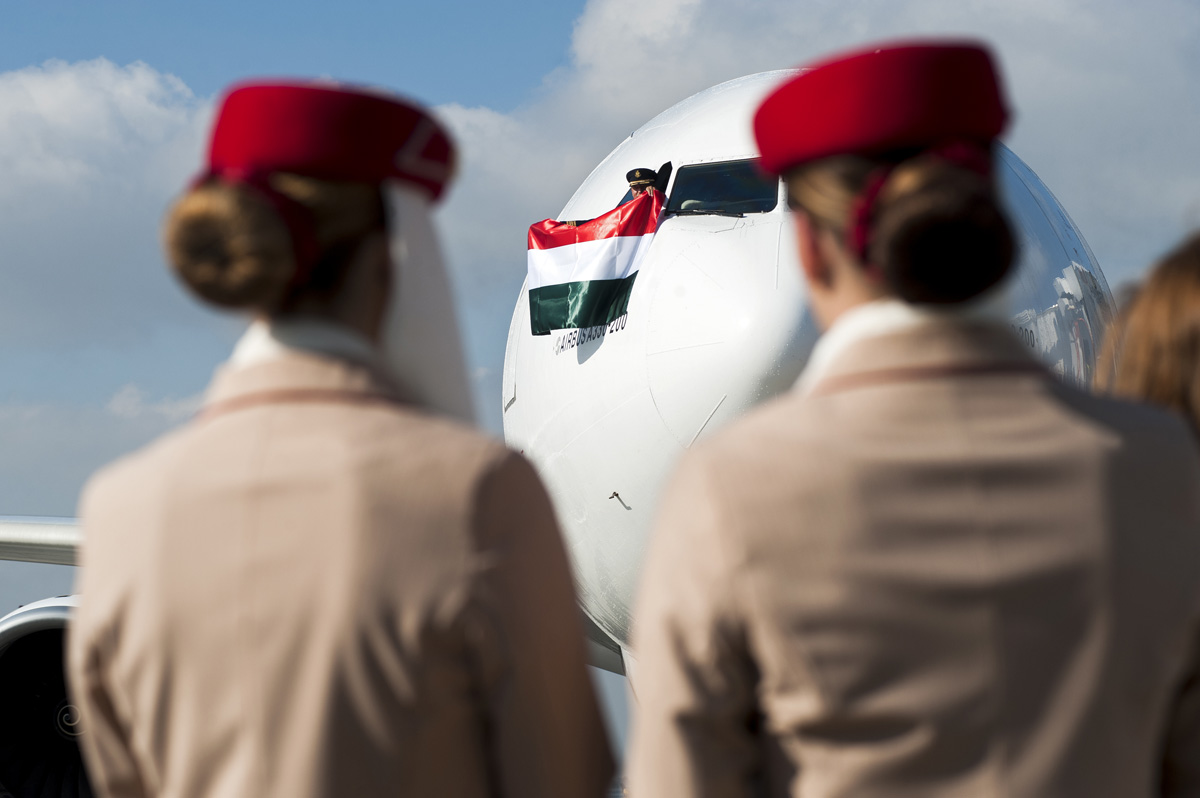By and large, airlines from across the Middle East – including the likes of Emirates, Etihad and Qatar Airways – have been fantastic for elevating the passenger experience. The Persian Gulf carriers have arguably done more than any other airline to improve flying in recent years – setting the bar way above what many of us were used to.
As passengers, we’ve demanded that legacy premium airlines from Europe, North America and beyond up their game. Admittedly, many carriers don’t have pockets which are quite as deep as say, Emirates but by and large they’ve responded with new products and services that can just about compete.
But while we demand a better experience across the board, curiously passengers remain tight-lipped on demanding a better working life for cabin crew at Middle East airlines. These carriers operate opaque and often unfair recruitment policies which would never be legal in Europe, for example.
Admittedly, skill, attitude, experience and aptitude does play a part in landing a cabin crew job for airlines like Emirates and Etihad. But there are other things going on behind the scenes that candidates have no control over – such as their gender or age. We believe this should change.
Of course, it’s not just the Middle East airlines which have unfair and discriminatory recruitment policies. Big brand airlines like Singapore Airlines deserve to be named and shamed as well.
So why are we calling out the Gulf airlines? Because they are led and managed by European airline execs who quite simply should know better. These airlines have the power and brand recognition to change the mindsets of passengers and promote eqaulity and inclusivity.
But as it stands, they seem to be fostering an old-fashioned and outdated image of cabin crew – one which was created in the United States but which has thankfully been eroded over the last few decades.
As a candidate, that’s all very well and good if you happen to fall into the narrow definition of what these airlines believe cabin crew should be. But how can the process be made fairer for everyone?
Gender
:: Equal gender representation
:: Including a 50/50 gender mix in advertising
Even in the United States, current estimates suggest that women make up 80% of all flight attendants. It’s been built into our psyche that the role of cabin crew is one which should be performed by women – breaking down that stereotype is going to take some time.
Many airlines aren’t particularly interested in going out of their way to encourage equality, while others seemingly encourage the stereotype. Female candidates are more likely to land a job as cabin crew with a Middle East airline and recruiters have been known to exclude male candidates.
Emirates should be applauded for encouraging more women to become pilots – perhaps in part because the world is facing a dire pilot shortage. Now the airline should go further and aim for equal gender represenation amongst cabin crew.
An airline, like Emirates, which has so much brand recognition could start by prominently including male cabin crew in its advertising. We’ve seen far too many photo shoots with male airline execs flanked by an all-female cast of cabin crew. There’s really no excuse for the Emirates cabin crew promotions team to be staffed only by female flight attendants.
Age
:: Airlines shouldn’t impose age restrictions
:: Long-serving cabin crew shouldn’t be forced to retire
How old is too old to become cabin crew? Some airlines, such as Saudia and Oman Air aren’t interested in anyone over the age of 30 years old. Other carriers in the region, such as Emirates, Etihad and Qatar Airways say they have no maximum age limit.
Sadly, anecdotal evidence would suggest that a maximum age limit very much exists at these airlines. Yes, people above 30 do occasionally land the job but they are very much in the minority.
Quite simply, maturity shouldn’t be a barrier to becoming cabin crew. There is nothing to say that someone over the age of 30 won’t be able to perform well or keep up with their younger counterparts.
At Emirates, we exposed a policy of limiting the contracts for cabin crew who had reached 50 years old. There’s absolutely no excuse for this regulation.
Appearance
:: People come in all shapes and sizes – so should cabin crew
:: Airlines should embrace diversity
Should cabin crew candidates who have a small mark or scar on their hands be refused a job? You probably haven’t even given it a thought before (why would you, it’s only a little mark) but at Qatar Airways, a small scar will see an otherwise excellent candidate rejected by the recruiters.
There are situations when size or appearance might play a legitimate part in a recruitment decision. Someone who is too short won’t be able to reach emergency equipment, an excessively obese candidate won’t fit in the mandatory crew harness and many airlines still have rules on visible tattoo’s.
Airlines should eliminate appearance from the recruitment decision. Candidates shouldn’t be expected to submit multiple photos of themselves – the decision should be made on their attitude, skills and experience.
Nationality
:: Airlines should be open and honest
:: Candidates should normally be chosen on their skills, not their nationality
This is quite a difficult one to explain. After all, nationality can actually be quite a legitimate criteria for choosing cabin crew. Whether it be because of legal requirements or for cultural and language reasons.
In fact, airlines in the Middle East should be congratulated for building such a diverse and cosmopolitan mix of cabin crew. Emirates, for example, has cabin crew who represent over 130 different nationalities.
But airlines should be open and honest. If they require crew of a certain nationality to meet a specific need – such as cultural understanding – then they should specifically advertise for this nationality.
There should never be an excuse for excluding a nationality unless an airline is legally obliged to do so.
We believe our manifesto is both achievable and realistic. After all, the issue of equality for transexual cabin crew is one which needs to be addressed throughout Europe but we understand this would be illegal in the UAE or Qatar.
But what do you think? Are you happy with the status quo or do you think airlines could do more to promote equality? Do you think equality would harm service standards?
Let us know your thoughts in the comments below…




